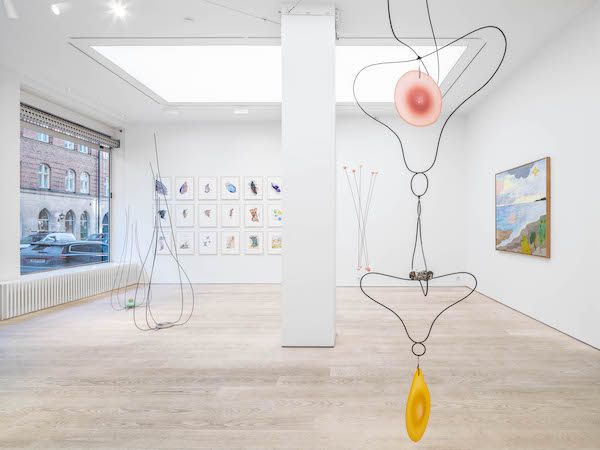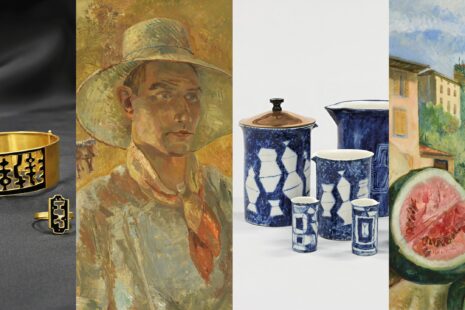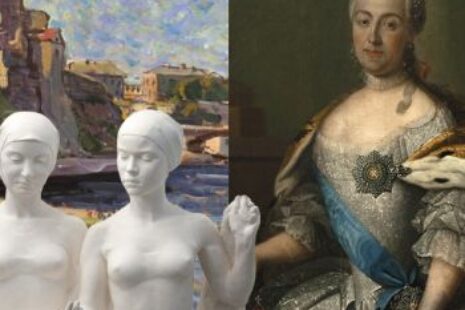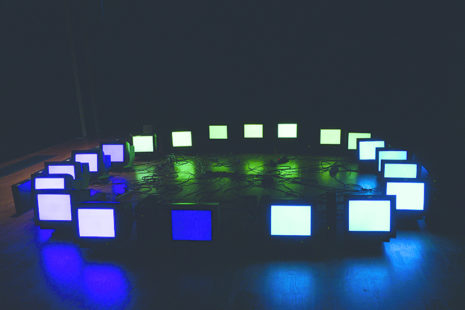f the domestic, everyday life, expressed through unconventional materials, in the beginning was a central theme in Ellberg’s art, her work has increasingly opened up to her approach to the eternal questions and in her exhibition at the gallery Ellberg’s holistic conviction crystallizes. With nature as a starting point, more specifically the ever-changing sea landscape as a motif, Carin Ellberg visualizes a symbolic realm rather than an external landscape.
The stones in the title of the exhibition are the ancient objects that link us to the eternal and the threads connect the spiritual with the material world. In her sculptures, paintings and watercolors, a central form reappears: the oval. It alludes to the face or the mirror image where the other becomes oneself, it is the form that symbolizes that all people belong together. The symbol can also be found as spheres in pink glass at the ends of sculptures made of iron rods that float in the room like lines or wires. These hanging sculptures reflect Ellberg’s paintings and the shapes are in turn found in the watercolors, which with their semi-abstract figures repeat the theme. The color scale consists of muted pastels which for Ellberg are colors that she physically relates to, where pink is a central color that stands for both body and spirit.
The exhibition’s diverse techniques and materials, with interwoven motifs and themes in two- and three-dimensional form, become a metaphor for the holistic worldview that permeates Carin Ellberg’s art: everything belongs together, everything is connected.
Carin Ellberg was born in 1959 in Stockholm, where she still lives and works. She is educated at the Royal Institute of Art and since her debut in 1989 she has had a given place on the Swedish art scene. Ellberg’s works are represented in several private and public collections, including the Moderna Museet, Stockholm, ARKEN Museum for Moderne Kunst, Copenhagen, Malmö Museum, Uppsala Konstmuseum and Borås Konstmuseum and she has made a number of permanent works in the public space.
Gallery name: Andréhn-Schiptjenko
Address: Linnégatan 31, Stockholm
Opening hours: Tue-Fri 11:00 - 18:00, Sat 12:00 - 16:00
Open: 25.02.2021 - 10.04.2021







